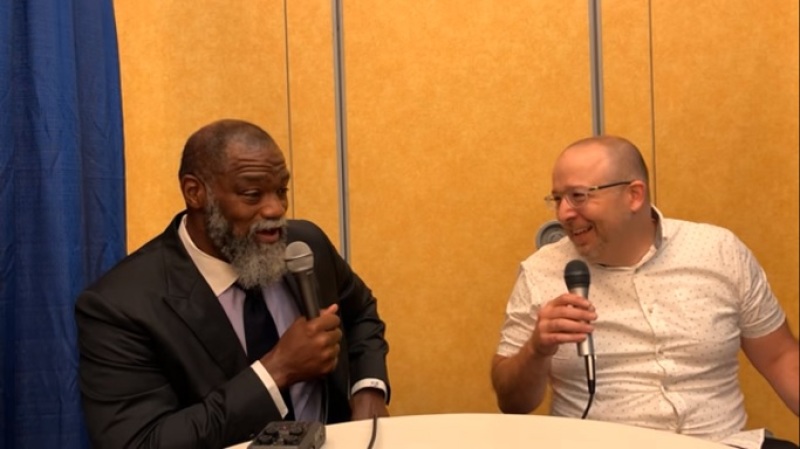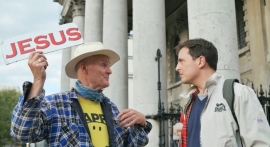
Voddie Baucham discussed his book "Fault Lines" with Shaun Tabatt at the 2021 NRB in Dallas for the Shaun Tabatt Show, an interview program that links Christians to thinkers worldwide.
Baucham spoke on the roots of critical theory and how Christians may productively participate in the debate.
Two of Baucham's major arguments in his book were the notion that disadvantaged minorities have privileged access to the truth that other people don't; and the premise that white people are incapable of righteous actions in the area of race unless their interests coincide with those of people who are different races than themselves.
For Christians who are wondering how they might be a part of these discussions in a manner that is constructive, Baucham referred to a principle in 2 Corinthians 10:4 that says that arguments and lofty views made against the knowledge of God should be destroyed.
"We've got to understand what these things are. We got to identify them, and we've got to destroy them.," he said. "The second thing is we take every thought captive to obey Christ, so our thoughts about race, our thoughts about ethnicity, our thoughts about sexuality, our thoughts about reconciliation, thoughts about history, all of those things have to be taken captive to obey Christ."
He went on to add that one thing he tries to do is to give individuals the tools they need to understand, evaluate and discuss ideas intelligently. He said that Christians must educate themselves while adhering to the "wise as serpents and innocent as doves" principle.
"Ultimately we have to recognize that these things are at war with us, and we've got to fight," he warned of the scandals and contentious topics that have engulfed the country.
The Gospel and CRT
With so many famous church leaders jumping on the race bandwagon, Baucham wonders when the gospel became inadequate in dealing with certain cultural issues. He contends that it's blasphemy to assume that the Scriptures and the Gospel are insufficient, and that people need critical race theory in order to understand rationally the relationships between groups of people.
The author of the "Fault Lines" emphasized that the CRT works like a religion because of the worldview they're promoting as an answer to key issues about identity that deviate from the Christian narrative of "creation," "fall," "redemption," and "consummation."
As an example, Baucham cited the United States as a country where the "oppressor-oppressed" paradigm has been emphasized. He also said that CRT has its own "cosmology, saints, martyrs, and priesthood," which he referred to as "ethnic gnosticism."
Baucham continued by stating that he has come across people who frame the discussion in terms of a "balanced view," which he defined as incorporating at the very least the premise of critical race theory while using the word gospel. He disputed this and said that he finds it amusing that those, like himself and Owen, who approach the issue from a biblical standpoint are assumed to be unbalanced from a people's standpoint.
Listen to Voddie Baucham and Shaun Tabatt's discussion below.




















